♣ PFA (Professional Footballers' Association)
The Professional Footballers' Association (PFA) is the trade union for professional association footballers in England and Wales.
Founded in 1907, the PFA is the world's oldest professional sport trade union. The union has a membership of approximately 5,000 current professional players each season, made up of professionals and professional scholars from the Premier League, EFL and Women’s Super League.
Nearly 50,000 former members retain access to services and benefits including education grants, coaching courses and wellbeing support.
The current CEO of the PFA is Maheta Molango, who took over the position from longstanding Chief Executive Gordon Taylor in 2021. The current Chair of the elected Players' Board, which represents members and communicates their views to the union's leadership team, is Leyton Orient defender Omar Beckles.
The leadership team of the PFA, which has offices in London and Manchester, is also supported by an Operational Board of non-executive directors who are responsible for advising on and scrutinising the governance of the union.
▲ PFA Emblem
▼ Connection Pages
♣ History
The Players' Union
The PFA was formed on 2 December 1907 as the Association Football Players' and Trainers' Union (AFPTU; commonly referred to at the time as the Players' Union). On that date, Charlie Roberts and Billy Meredith (who had been involved in the AFU), both of Manchester United, convened the Players' Union at Manchester's Imperial Hotel.
This was the second attempt to organise a union of professional footballers in England, after the Association Footballers' Union (the "AFU"), formed in 1898, had been dissolved in 1901. The AFU had failed in its objectives of bringing about a relaxation of the restrictions on the movement of players from one club to another in the Football League and preventing the introduction of a maximum wage of £4 per week for players in the Football League.
Like the AFU before it, the Players' Union intended to challenge the maximum wage and the restriction on transfers, in the form of the "retain and transfer" system.
Threatened strike action in 1909
When the Players' Union made its objectives clear in 1909, the Football Association withdrew its recognition of the Union, which at that time was seeking to join the U.K.'s General Federation of Trade Unions ('GFTU').
In response, the Union threatened strike action. The Football Association in turn banned players affiliated with the AFPTU before the start of the 1909–10 season. The ban saw membership of the Union fall. However, players from Manchester United refused to relinquish their membership. League clubs turned to amateur players to replace players that had been banned, but Manchester United were not able to find enough replacements, risking the cancellation of their opening fixture at home to Bradford City. The Manchester United players were called "Outcasts FC".
The deadlock swung in favour of the Union when Tim Coleman of Everton came out in support of the Union. Coleman's intervention resuscitated support for the Union, which regained its strength of numbers. Agreement was reached on official recognition for the Union in exchange for allowing bonus payments to be made to players to supplement the maximum wage. The maximum wage remained for more than another half century.
Continuing battles with the Football League
The 1910s saw the Union backing a challenge by Herbert Kingaby against the retain and transfer system in the courts. Kingaby brought legal proceedings against his former employers, Aston Villa, for preventing him from playing. The Players' Union funded the proceedings. Erroneous strategy by Kingaby's counsel resulted in the suit ending disastrously for the Union. The Union were almost ruined financially and membership fell drastically.
Although membership increased from 300 in 1915 to well over 1000 by 1920 this did not herald a new era of radicalism among the rank-and-file. Widespread unemployment heralded declines in attendance at Football League matches at a time when many clubs had, once again, committed themselves to expensive ground improvement programmes in the expectation that the post-war spectator boom would continue indefinitely. Inevitably, this caused financial difficulties at many clubs. Clubs believed their problems were due to players' excessive wages rather than over-expansion. In the spring of 1922, they persuaded the League authorities to arbitrarily impose a £1 cut to the maximum wage (£9 a week at that time) and force clubs to reduce the wages of players who were on less than the maximum. Legal proceedings backed by the Players' Union this time established that clubs could not unilaterally impose a cut in players' contracted wages.
Between 1946 and 1957 the Chairman of the Union was former Portsmouth captain Jimmy Guthrie. His book Soccer Rebel, published in 1976, documents his chairmanship and the struggle of the Union to improve the lot of professional footballers in the years preceding the abolition of the maximum wage.
In 1955, the union affiliated to the Trades Union Congress (TUC).
Modernisation
In 1956, Jimmy Hill became secretary of the Players' Union. He soon changed the union's name to the Professional Footballers' Association (the "PFA"), changing a blue collar image to one in keeping with the new wave of working-class actors and entertainers.
In 1957, Jimmy Hill became chairman of the PFA and campaigned to have the Football League's £20 maximum wage scrapped, which he achieved in January 1961. His Fulham teammate Johnny Haynes became the first £100 player.
The PFA also backed George Eastham in his legal action against the retain and transfer system, providing him with £15,000 to pay for his legal fees. The case was brought against his former club, Newcastle United, in the High Court. In 1963, The Court held that the retain and transfer system was an unreasonable restraint of trade.
From 1960, the union began representing trainers, and for a time was known as the "Professional Footballers' and Trainers' Association".
The union decided to register under the Industrial Relations Act 1971, something the TUC opposed. As a result, it left the TUC in 1973, finally rejoining in 1995.
Sexism controversy
In 1997 some Sheffield United players invited their agent, Rachel Anderson, to the annual awards dinner. Anderson was turned away by then PFA Deputy Chief Executive Brendon Batson because she is a woman.
The following year, when West Ham United F.C. player Julian Dicks invited Anderson to attend the dinner, Anderson contacted the PFA to find out what their reaction would be. On receiving a response that she would indeed be banned Anderson decided to go public and take the PFA to court. As a result, the Minister for Sport, Tony Banks, and the Chief Executive of The Football Association, Graham Kelly boycotted the event.
Anderson won in court and the financial cost to the PFA was considerable, Anderson suggests "over £200,000", of which she received £7,500 for "hurt feelings" and an undisclosed amount for "reasonable costs".
In 2013 the PFA instituted awards for the PFA Women's Players' Player of the Year. Kim Little was the recipient in the first year.
Dispute with Ben Purkiss
In November 2018 it became public that Ben Purkiss' eligibility to be Chairman was in dispute. More than 200 players wrote an open letter calling on chief executive Gordon Taylor to stand down. Taylor wrote an open letter in response promising a full and open review of the union's structure and operation. At its 2018 AGM, held in Manchester in March 2019, it was agreed that Taylor, Purkiss and the entire management committee would stand down following the completion of a "full and open review" into the PFA's finances and its presentation at the 2019 AGM,
Following internal and external criticism, the PFA committed to reform and modernise, adopting new governance rules in 2020 and a new chief executive in 2021, but later that year sparked protest when it decided not to publish an independent review.
♣ PFA Awards
 PFA Players' Player of the Year
PFA Players' Player of the Year
The Professional Footballers' Association Men's Players' Player of the Year (often called the PFA Men's Players' Player of the Year, the Players' Player of the Year, or simply the Player of the Year) is an annual award given to the player who is adjudged to have been the best of the year in English football. The award has been presented since the 1973–74 season and the winner is chosen by a vote amongst the members of the players' trade union, the Professional Footballers' Association (PFA). The current holder is Erling Haaland of Manchester City, who won the award for the first time on 29 August 2023.
The first winner of the award was Leeds United defender Norman Hunter. As of 2023, only Mark Hughes, Alan Shearer, Thierry Henry, Cristiano Ronaldo, Gareth Bale, Kevin De Bruyne and Mohamed Salah have won the award on two occasions, and only Henry, Ronaldo and De Bruyne have won the award in consecutive seasons. Of the seven, only Shearer won his two awards playing for different teams. Although there is a separate PFA Young Player of the Year award, young players remain eligible to win the senior award, and on three occasions the same player has won both awards for a season, Andy Gray in 1976–77, Ronaldo in 2006–07 and Bale in 2012–13. Only three non-European players have won the award: Luis Suárez (Uruguay) in 2013–14, Riyad Mahrez (Algeria) in 2015–16, and Mohamed Salah (Egypt) in 2017–18 and 2021–22.
Every spring, each member of the association votes for two players. A shortlist of nominees is published in April and the winner of the award, along with the winners of the PFA's other annual awards, is announced at a gala event in London. The award is regarded by the players themselves as extremely prestigious, with Teddy Sheringham describing it in 2001 as "the biggest personal award you can get in the game", and John Terry stating in 2005 that he considered it "the ultimate accolade to be voted for by your fellow professionals whom you play against week-in and week-out".
▲ Erling Haaland (Men's 2022-23)
▲ Rachel Daly (Women's 2022-23)
 PFA Young Player of the Year
PFA Young Player of the Year
The Professional Footballers' Association Young Player of the Year (often called the PFA Young Player of the Year, or simply the Young Player of the Year) is an annual award given to the young player who is adjudged to have been the best of the season in English football. As of 2021, players must have been aged 21 or under as of 1 July immediately preceding the start of the season; in the past the age limit has been 23, which led to criticism in the media over whether a player who was 24 years old at the end of the season could really be considered "young" in footballing terms. The award has been presented since the 1973–74 season and the winner is chosen by a vote amongst the members of the players' trade union, the Professional Footballers' Association (PFA). The first winner of the award was Ipswich Town defender Kevin Beattie. The current holder is Arsenal player Bukayo Saka, who won the award on 29 August 2023.
Although the award is open to players at all levels, all winners to date have played in the highest division of the English football league system. In 2018 Ryan Sessegnon of Fulham became the first player from outside the top division of English football to be nominated for the award. As of 2023, only Ryan Giggs, Robbie Fowler, Wayne Rooney, Dele Alli and Phil Foden have won the award on more than one occasion. Only seven players from outside the United Kingdom have won the trophy, compared with fifteen winners of the main PFA Players' Player of the Year award. Although they have their own dedicated award, players aged 21 or under at the start of the season remain eligible to win the Players' Player of the Year award, and on three occasions the same player has won both awards for a season.
A shortlist of nominees is published in April and the winner of the award, along with the winners of the PFA's other annual awards, is announced at a gala event in London. The players themselves consider the award to be highly prestigious, because the winner is chosen by his fellow professionals.
▲ Cole Palmer (Men's 2022-23)
▲ Lauren James (Women's 2022-23)
 PFA Fans' Player of the Year
PFA Fans' Player of the Year
The Professional Footballers' Association Fans' Player of the Year (often called the PFA Fans' Player of the Year, or simply the Fans' Player of the Year) award is given to footballers in the top four flights of English football, the Premier League, the Championship, League One and League Two.
The shortlist is compiled by the members of the Professional Footballers' Association (the PFA), and then the winner is voted for by the fans of the league.
The award was first given in 2001, and was won by Steven Gerrard, Chris Bart-Williams, Brian Tinnion and Bobby Zamora, of Liverpool, Nottingham Forest, Bristol City and Brighton & Hove Albion respectively. Mohamed Salah is the record holder for winning the award 3 times. Marcus Rashford is the current Premier League award winner.
▲ Marcus Rashford (Men's 2023)
▲ Sam Kerr (Women's 2021-22)
 PFA Team of the Year
PFA Team of the Year
The Professional Footballers' Association Team of the Year (often called the PFA Team of the Year, or simply the Team of the Year) is an annual award given to a set of 55 footballers across the top four tiers of men's English football; the Premier League, the Championship, League One and League Two, as well as the women's FA WSL, who are seen to be deserving of being named in a "Team of the Year".
-
Kenny Sansom currently holds the most appearances in the PFA Team of the Year over all divisions with 11 appearances.
-
Peter Shilton currently holds the most appearances in the PFA Team of the Year in the top division with 10 appearances.
-
Steven Gerrard currently holds the most appearances in the PFA Team of the Year in the Premier League era with eight appearances.
The award has been presented since the 1973–74 season and the shortlist is compiled by the members of the players' trade union, the Professional Footballers' Association (PFA), in January of every year, with the winners then being voted for by the other players in their respective divisions. The award is regarded by players in the Football League as the highest accolade available to them, due to it being picked by their fellow professionals. In 2014, a team for female players competing in the FA WSL was selected for the first time.
 PFA Merit Award
PFA Merit Award
The Professional Footballers' Association Merit Award (often called the PFA Merit Award, or simply the Merit Award) is an award given by the Professional Footballers' Association (the PFA) for meritorious service to football.
The award was first given in 1974, and was won (jointly) by Bobby Charlton and Cliff Lloyd. The latest winners of the award are Ian Wright and Jill Scott.
▲ Steven Gerrard (Player 2015)
▶ PFA Men's Go Page
▶ PFA Women's Go Page
 Premier League
Premier League La Liga
La Liga Bundesliga
Bundesliga Serie A
Serie A Ligue 1
Ligue 1 Liga Portugal
Liga Portugal Eredivisie
Eredivisie Süper Lig
Süper Lig MLS
MLS Série A
Série A J1 League
J1 League Saudi Pro League
Saudi Pro League WSL
WSL Première Ligue
Première Ligue NWSL
NWSL







 Chapter 11. Records & Awards > PFA (Professional Footballers' Association) Awards
Chapter 11. Records & Awards > PFA (Professional Footballers' Association) Awards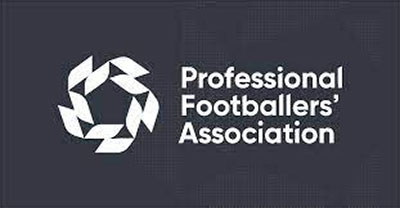
 PFA Players' Player of the Year
PFA Players' Player of the Year

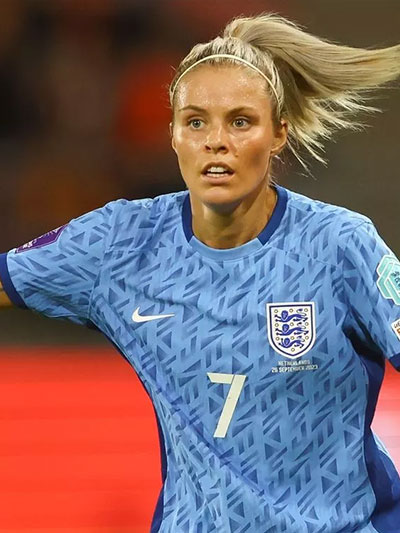
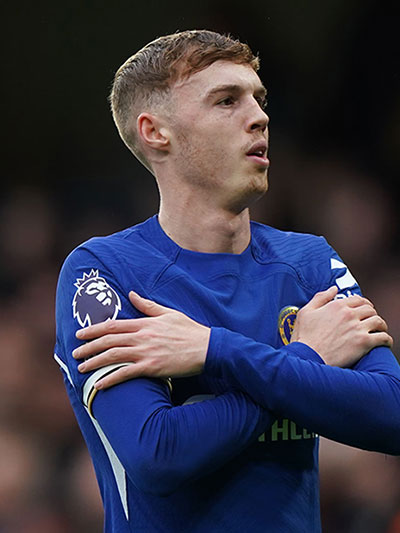
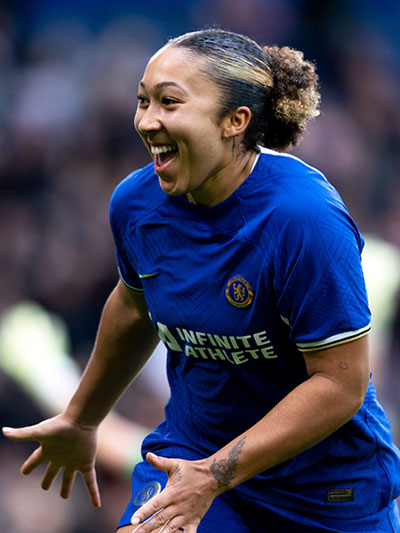

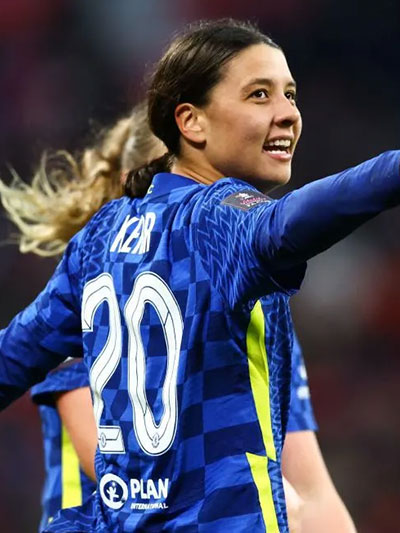
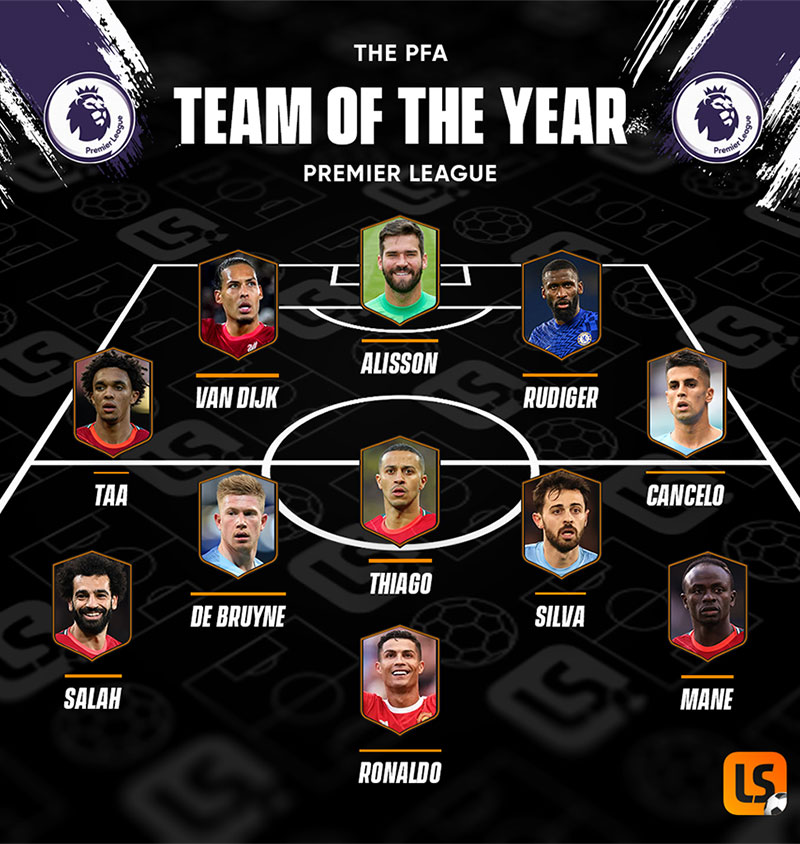
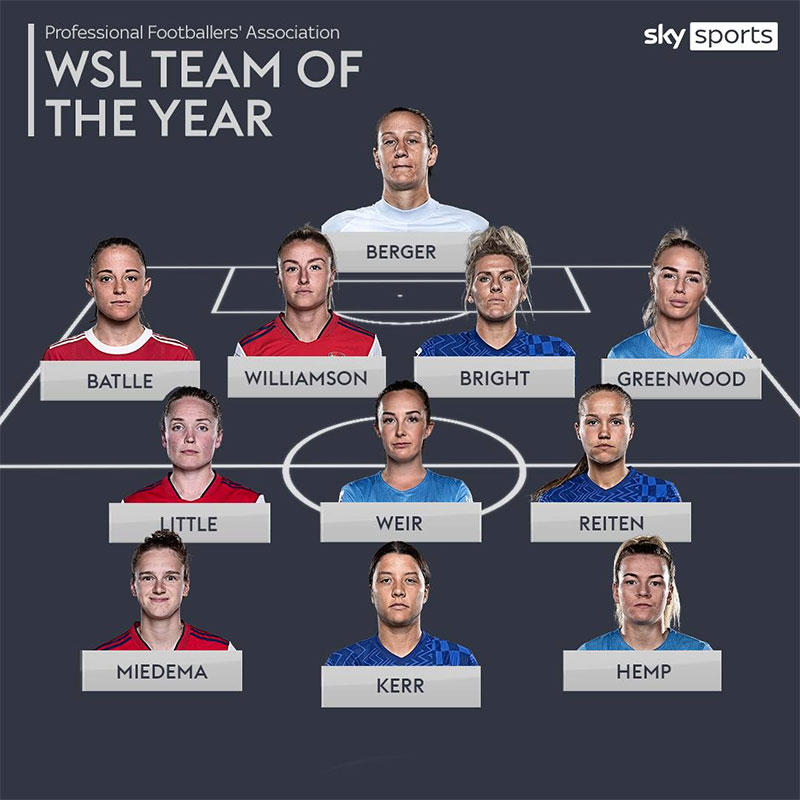

 •Wikipedia
•Wikipedia








